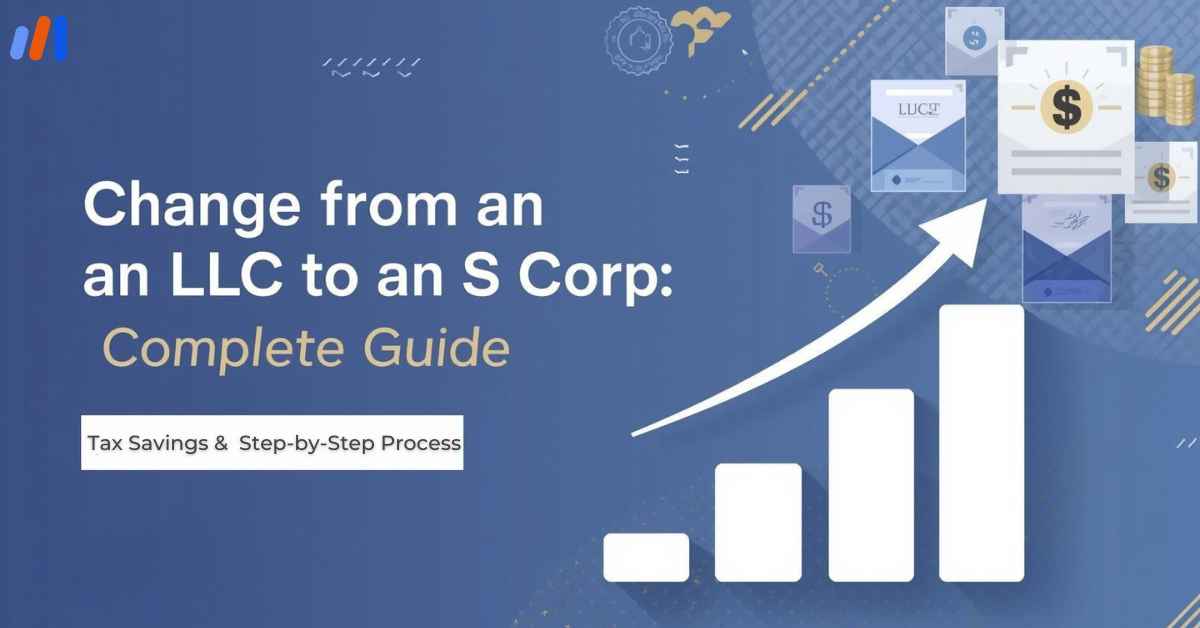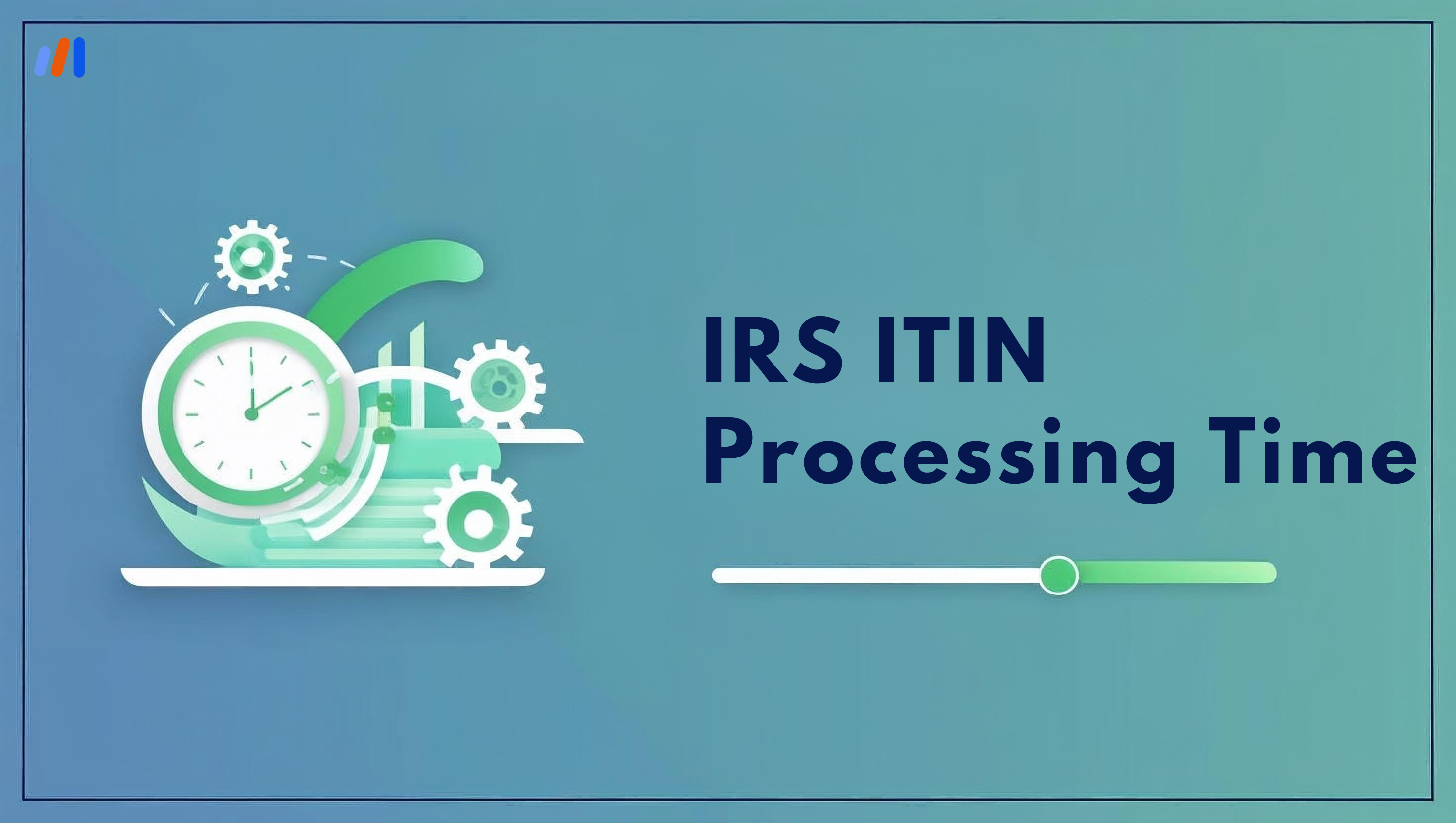Changing from an LLC to an S Corp Explained
The decision to change from an LLC to an S corp represents one of the most strategic moves a growing business can undertake. This change of status will exercise an S corporation tax election for your already existing Limited Liability Company. This will change the tax flow of the business, but the legal structure of the business will remain the same.
Diversifying from a business LLC to a corporation is much easier than creating an entirely new firm. This is because the individual is still able to benefit from the remarkable tax advantages still deriving from the business LLC. This process has become increasingly popular among people whose initial business structure does not align well with the peculiar corporation tax benefits.
Why Business Owners Change from an LLC to an S Corp
More than anything else, the reason why most business owners change from an LLC to an S corp is the tax savings offered. When an LLC becomes an S corporation, the owners do not sustain losses on the employment taxes.
Key motivations include:
- Tax Savings: Reduction of self-employment tax
- Business Growth Planning: S Corp status fuels the S Corp pathway with forecasting capabilities
- Payroll Tax Flexibility: Mastery over payroll tax via better compensation bundles through distributions and salary perks
- Professional Credibility: Enhanced professional image with clients, vendors, and financial institutions
- Retirement Planning Benefits: Tax-advantaged retirement contributions and better retirement planning opportunities
Key Considerations Before Electing S Corp Status
These stimulating features, however, are details to consider before electing S Corp status. There are still other aspects to stay mindful of. First, with the set criteria for the S Corporation status, the business model will have to change from an LLC to an S Corporation to comply with the Internal Revenue Service.
Ownership Limitations
- Capped at 100 shareholders
- Only U.S. citizens and permanent residents can own shares
- No corporate or partnership ownership permitted
- Single class of stock requirement
Operational Requirements
- Business operates on a calendar year
- No “excess passive income” over 25% gross receipts
- Reasonable owner-employee salaries must be paid
- A formal compensation system with tax deductibles is required
LLC vs. S Corp: What’s the Real Difference?
| Aspect | LLC | S Corp Election |
|---|---|---|
| Tax Structure | Pass-through taxation with SE tax on all profits | Pass-through taxation with SE tax only on salaries |
| Management | Member management is flexible | Formal corporate structure is compulsory |
| Profit Distribution | Profit-sharing is flexible | Pro-rata based on ownership percentage |
| Payroll Requirements | None for owner-employees | Total payroll obligations are mandatory |
| Record Keeping | Minimal formal requirements | Extensive documentation and meeting minutes |
Step-by-Step Guide: How to Change from an LLC to an S Corp
Switching from an LLC to an S corp involves multiple steps. These steps must be done within a specific time:
Step 1: Check Requirements
Make sure your LLC meets all the requirements of the IRS. Resolve any issues that will disqualify you from proceeding.
Step 2: File Form 2553
Confirmation of the Request for the S-Corporation Election should be received within 2 months and 15 days of the start of the tax year. This form should be filed during that time.
Step 3: Gaining State Approval
Make sure you check the requirements of your state, as some have documents that need to be filed even when the state does recognize the election of S corporations.
Step 4: Creating Payroll Policies
Systems should be in place at the company to process the payroll wages and the tax owed for the owner-employees.
Step 5: Alter Operations for the Business
Increased standardization of corporate governance should be practiced, including achieving more frequent meetings and taking more extensive minutes of the meetings.
Tax Implications of Switching from LLC to S Corp
It is very important to understand the S-Corp tax consequences of an LLC change, as it is likely the most valuable benefit to the user in regard to self-employment taxes.
Self-Employment Taxes Comparison
- LLC: 15.3% SE tax on all business profits
- S Corp: 15.3% SE tax only on reasonable salary portion
Example Calculation
For a business earning $100,000 annually:
- LLC: $15,300 in self-employment taxes
- S Corp (with $60,000 salary): $9,180 in payroll taxes
- Annual Savings: $6,120
Additional Tax Considerations
- Pass-through taxation remains the same
- Potential for additional payroll processing costs
- State tax implications vary significantly
- Quarterly estimated tax payment requirements
When Does It Make Sense to Convert to an S Corp?
It takes a lower tax burden to justify the S Corp for most clients when you change from an LLC to an S Corp.
Revenue Thresholds
Self-employment taxes accomplish this. Added working time on the business record and S Corp company profits targets something between $60,000 and $80,000.
Business Situations Favoring Conversion
- Sustained profitable business activity
- Plans to recruit staff
- Rationale for needing a formalized business structure
- Desire to reinvest the earnings back into the business
- Multiple business owners want to delineate specific profit-sharing arrangements
Benefits of Changing from an LLC to an S Corp
Modification from an LLC to an S Corp structure allows for several benefits when you change from an LLC to an S Corp:
Financial Benefits
- Substantial savings on self-employment tax
- Higher contributions to the retirement plan
- More generous fringe benefits deductions
- Increased retention of earnings in the business
Operational Advantages
- Business reputation elevation
- More defined structure of ownership
- Simplified procedures for the transfer of ownership stakes
- Better chances for attracting investors
- Simplified plans for employee stock ownership
Potential Drawbacks of Converting an LLC to an S Corp
Despite the benefits, the decision to change from an LLC to an S corp comes with notable challenges:
Increased Compliance Requirements
- Increased tax compliance burden
- Increased concern from the IRS and audit risk
- Increased record-keeping burden
- Greater burden from corporate governance requirements
Operational Restrictions
- Difficulties with the business profit-sharing structure
- Enforcement of a reasonable compensation policy
- Payments for the corporate promotion and maintenance
- Greater burden of the professional tax preparation
- Greater burden of the corporate tax return filing
What Happens After You Change from an LLC to an S Corp?
The instant an LLC is converted to an S Corporation, when you change from an LLC to an S corp, whatever changes that occur relate to the below:
Changes in Tax Reporting
- Replace Schedule K-1 reporting with annual Form 1120S submissions
- Issue K-1 forms to every owner as part of the reporting
- Maintain thorough payroll records and quarterly submissions
New Instructions for Business Activities
- Follow the corporate governance procedures to schedule and hold annual or quarterly meetings
- File and protect your corporate books with the minutes of meetings and corporate resolutions
- Process and deposit payroll for owner-employees on set dates
- Change the methods of payment for the distributions of profits
Continuing Obligations
- Keep track of and report on the reasonableness of your required salary
- Control the limitations on passive income
- Keep the basic conditions for your structure
- Complete and submit all relevant state documents
Can You Convert an LLC to an S Corp During Tax Filing?
Many business owners wonder about the timing when they want to change from an LLC to an S corp. The IRS permits late elections in some cases, but such instances are few and have many restrictions and deadlines to meet.
Standard Deadline Requirements
- New businesses: Two months and 15 days after formation
- Existing businesses: Two months and 15 days after the tax year begins
Late Election Relief
The IRS might relieve the cause for late S corporation elections when there’s reasonable cause, such as:
- Mistakes on the part of professional counsel
- Lack of awareness of the process for the elections
- Events beyond the control of the party
State Rules: Not All States Allow Direct Conversions
It is crucial to know the specific requirements of each state when intending to change from an LLC to an S corp. Not all states grant S corporation status automatically for the federal elections.
States with Complications
- Non-Recognition States: Some states do not accept S elections
- Separate Filing Requirements: Additional state forms may be necessary
- Tax Implications: The consequences of taxation on the state level are quite disparate
Alternative Approaches
In these states that offer no direct options of conversion, business owners may look into:
- Forming a new S corporation, then transferring the assets
- Keeping LLC status while electing S corp taxation at the federal level
- Consulting local tax advisors for more state-tailored options
Easy Filing Can Help You Change from an LLC to an S Corp
The burden of understanding how to change from an LLC to an S corp does not need to be burdensome, as EasyFiling represents a level of professional service that simplifies the conversion process through comprehensive attention to federal and state legalities.
Our comprehensive services include:
- Eligibility verification and consultation
- Form 2553 preparation and filing
- State-specific requirement analysis
- Ongoing compliance support
- Payroll setup assistance
Frequently Asked Questions
Q: How long is the process of converting from an LLC to an S corp?
A: The IRS will act on Form 2553 within 60 days, although the election will be effective upon the date of filing.
Q: Can single-member LLCs make an election of S corporation status?
A: Single-member LLCs can make the S corp election, but they should begin taking a reasonable salary as an employee.
Q: What happens if I miss the election deadline?
A: The IRS can grant late election relief if there’s reasonable cause, but this requires additional documentation and approval.
Q: Must I change my business name?
A: No, your LLC name remains the same since you’re only changing tax election status, not legal entity structure.
Conclusion: Is an LLC or S Corp Better for Your Taxes?
The decision to change from an LLC to an S corp will actually depend on your specific business situation, income levels, and long-term goals. While S corporation status offers significant tax advantages to thriving businesses, the increased compliance requirements and business restrictions are not suitable for all situations.
For companies producing large profits (usually more than $60,000 a year), the tax savings from self-employment alone may make converting worthwhile. Yet your own individual situation, such as state tax effects and compliance ability, must be carefully examined before making the switch.
It might be prudent to consult with seasoned tax professionals who can examine your situation and help decide whether electing S corporation status is right for your business objectives. Tax savings and operating benefits can be dramatic, but only if the switch is made and continued under IRS rules.
File Your LLC Today
25$ off with a coupon
Lock in EasyFiling's transparent rates and get lifetime compliance support at no extra cost.
Get Started Now









